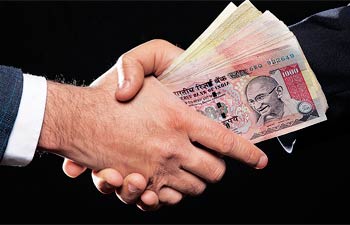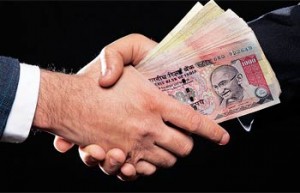Corruption and its effect on economic development is a fervent topic . It is defined as the efforts to secure wealth or power through illegal measures for private gain at public expense or misuse of public power for private benefit . Corruption is a global problem that exists in varying degrees in different countries . It is not only found in democratic and dictatorial politics, but also in feudal, capitalist, and socialist economies .
Many economies staunchly believe that malfunctioning of the government impedes investment, entrepreneurship and innovation . Also, cumbersome and dishonest bureaucracy delays the distribution of licenses and permits thereby slowing down the process of technological investment . It also impedes the economic growth by widening the gap between the rich and poor . Countries suffering from corruption cannot implement sound redistribution policies and thus are not expected to take benefit from sustainable economic development despite embarking upon economic growth from time to time . So corruption has a corrosive long term impact on investment and national income .
Perhaps some amount of corruption propels growth in a way that it raises the productivity of the people contributing to the economic activity . The analysis of data collected from various studies points out towards a clear- cut correlation between corruption and economic growth . Thus corrupt regimes always yield disastrous results . The more corrupt a country is, the slower is its economic growth rate . Corruption is a stigma that destroys the reputation of the affected country . Therefore stringent measures need to be taken to put an end to it, for only then a country would be able to realize its full development potential .





5 Comments. Leave new
Happy to see a new dimension to corruption!
Thanks shatakshi 🙂
Excellent work!
A new dimension, very well done!
VEry well wriiten 😀
Good work 😀